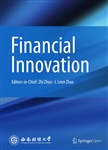Macroeconomic effects of Mobile money:evidence from Uganda
作者机构:The World BankJubaSouth Sudan Economic Policy Research CentreMakerere UniversityKampalaUganda.
出 版 物:《Financial Innovation》 (金融创新(英文))
年 卷 期:2019年第5卷第1期
页 面:387-406页
核心收录:
学科分类:02[经济学] 0202[经济学-应用经济学] 0201[经济学-理论经济学] 020204[经济学-金融学(含∶保险学)] 020203[经济学-财政学(含∶税收学)] 020101[经济学-政治经济学]
主 题:Mobile money Monetary policy Inflation Interest rates Private-sector credit Money demand GDP Uganda
摘 要:This study examined the effects of mobile money-a recent innovation in Uganda’s financial-sector landscape-on aggregate economic activity and other macroeconomic *** first estimated the long-run mobile-money demand function using vector error correction(VEC)techniques,distinguishing between balances and transfers/*** then estimated the short-run effects of mobile money on selected macroeconomic variables using structural vector autoregressive(SVAR)*** results showed that mobile money had moderate positive effects on monetary aggregates,consumer price index,private-sector credit,and aggregate economic *** money balances responded to changes in monetary policy instruments,signaling possible ameliorating effects for the conduct of monetary ***,the results showed that transactional motives related to mobile money had stronger macroeconomic effects than savings motives.



